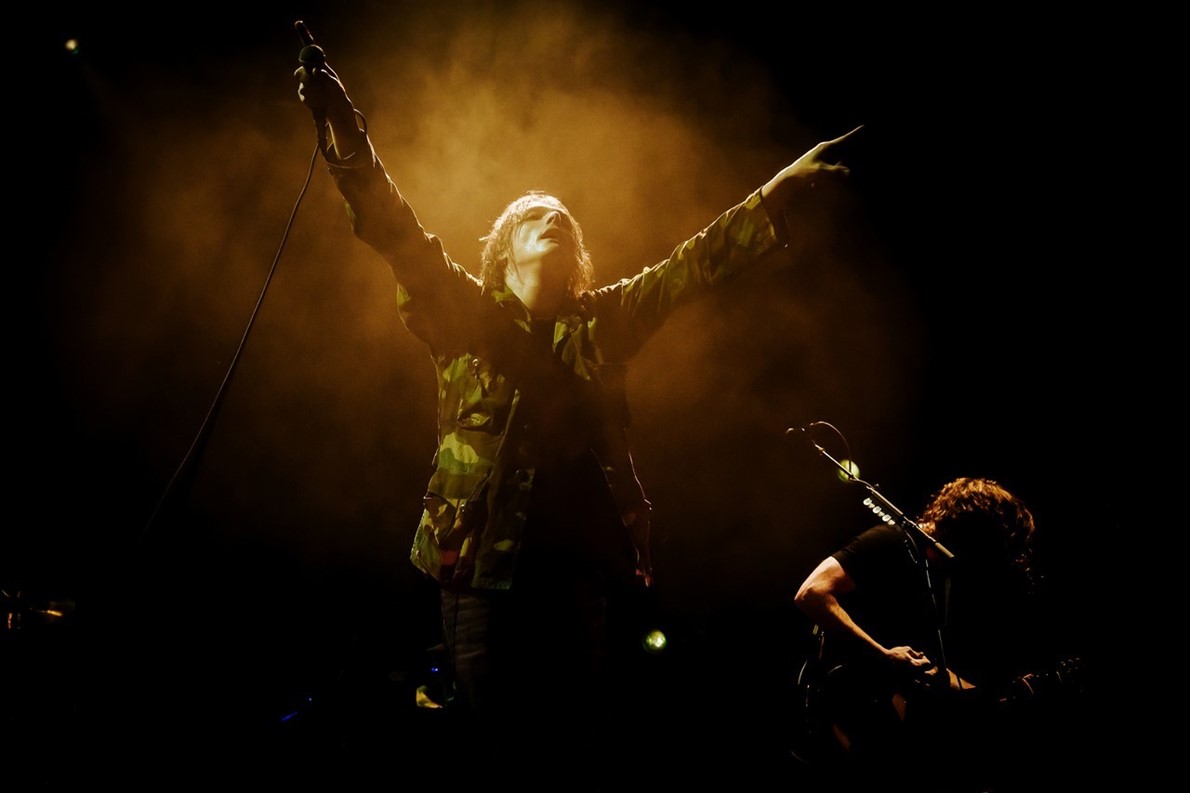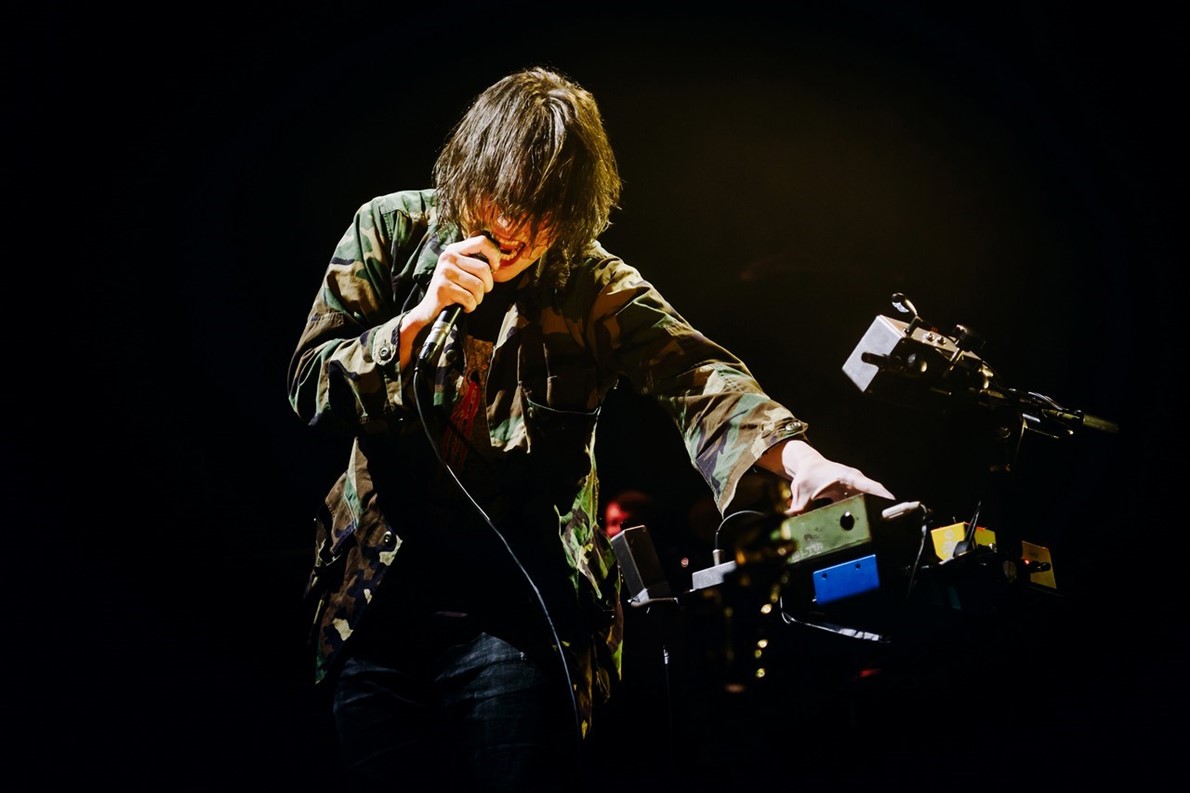NEW YORK, United States — In 2006, My
Chemical Romance — by then, an edgy screamo band turned ostentatious pop-punk
dramatists — released “The Black Parade,” a flashy and theatrical opus that
established the group as art-house emo sophisticates. It maintained some of the
scabrousness of its earlier albums, and smeared big-tent pop ambition atop it:
“The Wall” for the “TRL” era.
اضافة اعلان
On Saturday night
at Barclays Center in
Brooklyn, while performing “Welcome to the Black Parade,”
a caffeinated march that is one of that album’s signature songs, the band’s
front man, Gerard Way, saw the crowd pumping fists in the air and encouraged it
to go even harder.
“C’mon, I’m 45 doing this,” he said — a little tart,
a little bemused, maybe a little fatigued.
The passage of time is an inevitable subtext of all
reunion tours. This show, the first of four arena shows in the New York area,
was part of the group’s first proper tour in a decade. (Its last studio album,
“Danger Days: The True Lives of the Fabulous Killjoys,” came out in 2010.) In
that time, emo has gone through its second or third revival, Way’s comic book
“The Umbrella Academy” has become a
Netflix hit and something about the My
Chemical Romance mythos has deepened and hardened — it is now a misfit beacon.

Everyone is older now, and reality sometimes weighs
down memory. At this show, that played out as a tug of war between
been-there-done-that fatigue and we-survived-this-together triumph, with
triumph ultimately triumphing.
The band started tentatively, lading the show’s
first half with late career singles that felt much like conventional rock songs
— “The Only Hope for Me Is You,” “Boy Division.” It was almost as if this
rigorously flamboyant band was somehow shy about its own hits.
“Let me put on my sunglasses so I can look like an
authority figure,” Way said, after a dry half-hour of bits and bobs. What
followed was exuberant, rowdy, winningly messy: the chipper swing of the wry
“Teenagers” giving way to the frenzy of “Welcome to the Black Parade”. “Mama”
brought the Nutcracker to the mosh pit. “Helena,” perhaps the band’s most
memorable song, was part victory march, part plea.
These epic anthems about fearlessness, rebellion and
individuality were bracing. But the tension between the show’s two halves
exposed a light quirk about this band, which is that often what set it apart
from its peers was its sense of performance and its willingness to be ambitious
while its actual music remained more conventional.
That accessibility is what allowed My Chemical
Romance — Way; his brother, Mikey, who plays bass; guitarists Ray Toro and
Frank Iero — to survive long enough to thrive once more. They play with
confidence, if not always warmth. (It was Mikey’s 42nd birthday, and some
speakers onstage were adorned with drawings made by his children; most of the
band wore T-shirts celebrating him.)

In front of trompe l’oeil installations of
demolished buildings, the group was musically robust — Toro delivered taut
chaos, and touring drummer Jarrod Alexander was blistering, closing out the
heart-rending anthem “I’m Not Okay (I Promise)” with sensitive aggression and
then shifting right into the punchier intro of “House of Wolves.” There were
occasional flickers of rockabilly, ska, even death metal. Way is a lauded
wailer, but his growl is just as potent.
At times throughout the show, Way appeared lightly
cautious, never quite over singing, even on the songs that demand abandon. He
wore a camouflage jacket and a t-shirt featuring a smiley face with a bullet
hole in its head, blood dripping down the cheerful yellow visage, and toward
the end of the night, he put on a tight clear mask that had echoes of Patrick
Bateman.
It was a manque version of the hyper theatricality
that elevated the band out of scene notoriety to pop ubiquity. Late in the
show, Way described a conversation he’d had about how to navigate a comeback
tour after so many years, and the tension between performing for oneself and
performing for the crowd.
“Maybe for a time it was for me,” he conceded.
But not now. “It’s not about the ego,” he said.
And yet. “Sometimes it’s about that,” he continued. “That’s
a really delicate way of telling you I’m going to control you right now.”
Everyone pumped their fists in unison.
Read more Music
Jordan News



